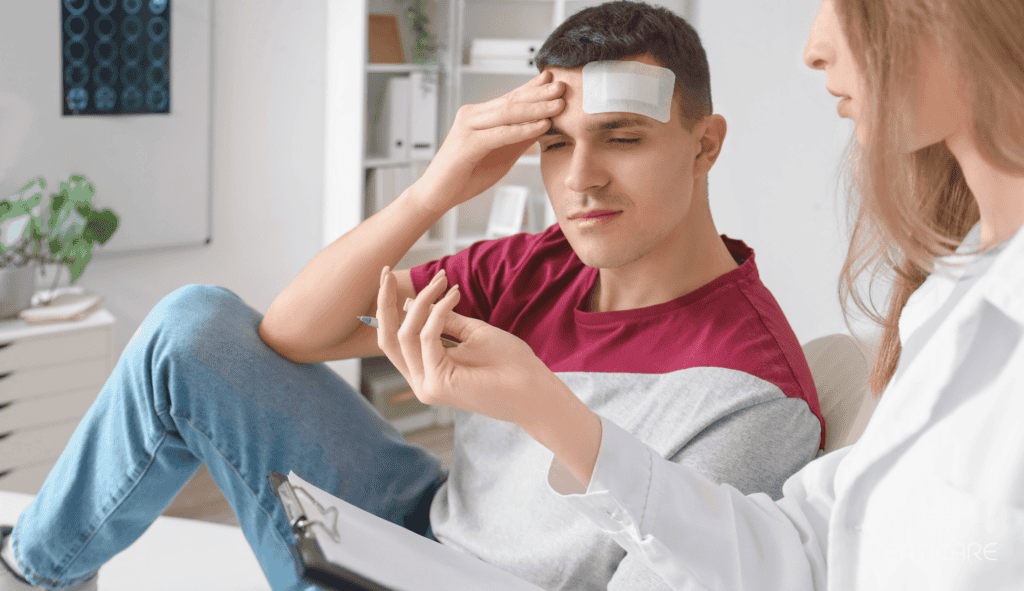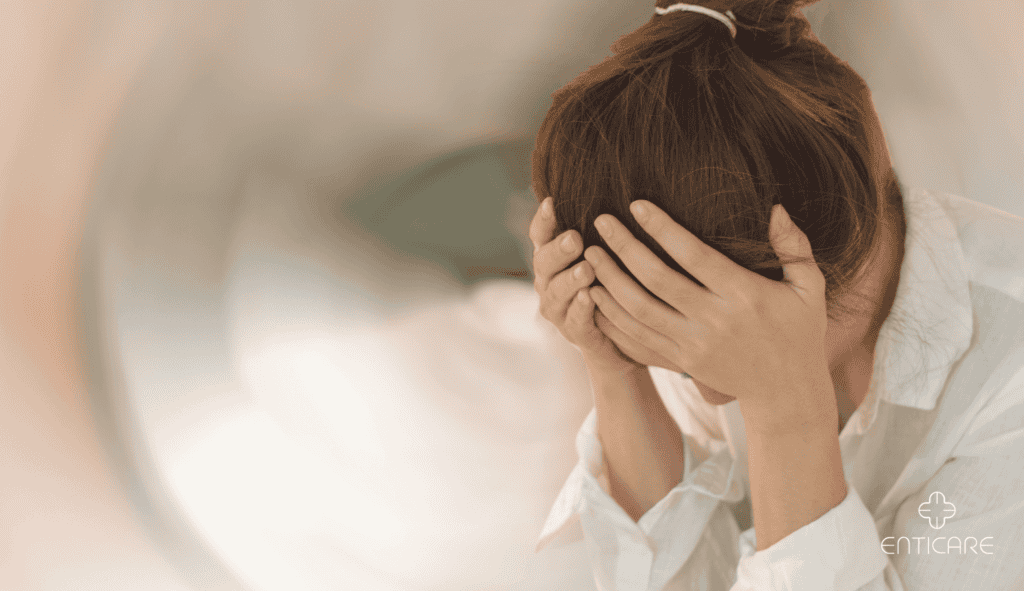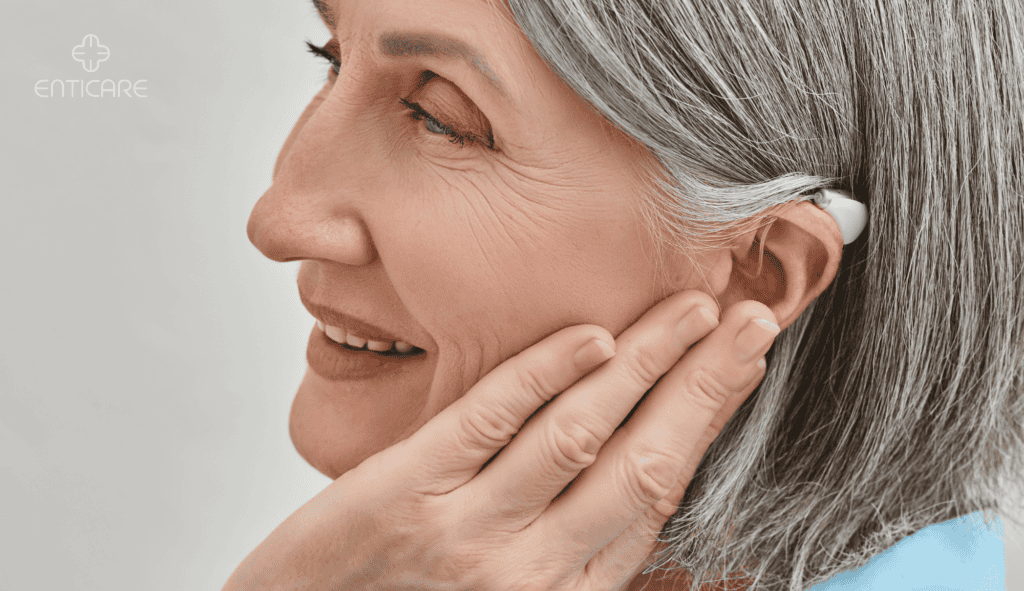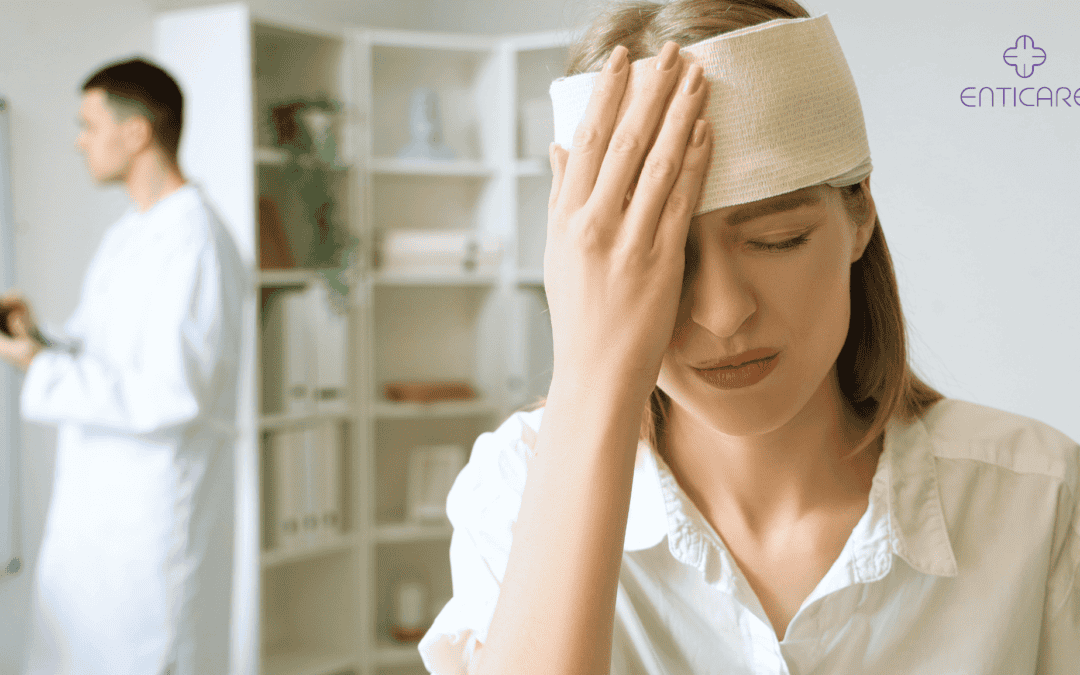In the wake of the ongoing concussion epidemic, the world has become increasingly aware of the dangers concussions pose to athletes, workers, and everyday people. Most discussions on concussions focus on brain injuries and cognitive impairments, but there’s an overlooked component that often gets swept under the rug: inner ear damage and ear injury. Concussions can lead to vestibular dysfunction, a condition that disturbs balance, hearing, and spatial awareness. Addressing inner ear damage has become essential for treating concussions effectively, yet too many go untreated.

Understanding Concussions and Brain Injury
What is a Concussion?
A concussion is a type of mild traumatic brain injury (TBI) that affects brain function. It occurs when a strong force jolts or shakes the body, causing the brain to move back and forth or side to side within the skull. This sudden movement can damage the tiny nerves and blood vessels in the brain, leading to a range of physical, cognitive, and emotional symptoms. Concussions are often the result of head injuries, including falls, car accidents, sports injuries, physical altercations, and other types of head trauma. Despite being classified as “mild,” concussions can have serious and lasting effects on brain function.
Concussion Symptoms
Concussion symptoms can manifest in various ways, affecting the physical, cognitive, and emotional aspects of a person’s well-being. Physical symptoms may include headaches, dizziness, nausea, vomiting, fatigue, sleep disturbances, and sensitivity to light and sound. Cognitive symptoms often involve difficulty concentrating, memory loss, confusion, mood changes, and challenges with problem-solving. Emotional symptoms can range from mood swings and irritability to anxiety, depression, and emotional instability. Additionally, concussions can lead to inner ear problems, such as balance issues, vertigo, and dizziness, further complicating the recovery process. In addition to these, other symptoms such as vision and hearing problems can develop over time and require further evaluation by specialists.
The Overlooked Impact of Concussions on the Inner Ear
Vestibular System and Balance Disruption
The vestibular system, located in the inner ear, plays a vital role in maintaining balance and spatial orientation, and a concussion can directly cause an inner ear injury. A concussion can directly damage this system, leading to symptoms such as dizziness, vertigo, and a loss of coordination. These symptoms might feel unrelated to the brain injury but are often direct results of vestibular dysfunction, and it is crucial to monitor when these symptoms occur to manage them effectively.
Hearing Loss: The Silent Aftermath
Concussions can impair hearing by disrupting the cochlea, a structure inside the inner ear. Research shows a significant link between concussions and temporary or even permanent hearing loss. The trauma can lead to a condition known as sensorineural hearing loss, where the tiny hair cells in the cochlea become damaged and can’t regenerate, leaving the patient with lifelong hearing challenges.
Tinnitus: Ringing That Won’t Stop
Tinnitus, characterized by constant ringing, buzzing, or humming in the ears, often arises after a concussion. The inner ear becomes damaged, leading to this persistent and sometimes debilitating symptom. The link between concussions and tinnitus has been well-documented, yet it remains an area overlooked in typical concussion recovery plans.

Symptoms of Inner Ear Injury After a Concussion
Chronic Dizziness and Vertigo
Patients with post-concussion inner ear damage frequently experience vertigo, a condition where the room seems to spin or tilt unexpectedly. Dizziness can be sporadic or constant, and the sensation often interferes with daily activities like walking or driving. Vertigo stems from the vestibular dysfunction caused by inner ear damage. Patients may also experience blurry vision, which can further complicate their daily activities and overall quality of life.
Unsteady Gait and Difficulty Walking
Damage to the inner ear impacts the body’s ability to gauge motion and balance. Individuals may have trouble walking in a straight line or feel off-balance, increasing their risk of falls and accidents. Balance problems are more than just physical inconveniences—they create psychological stress, anxiety, and social isolation.
Difficulty Concentrating and Cognitive Strain
While people typically associate cognitive problems with direct brain injury, inner ear damage can lead to similar effects. Patients often struggle with “brain fog,” trouble focusing, and headaches. These cognitive issues arise because the brain works overtime to compensate for the disrupted sensory input coming from the damaged vestibular system.
Why Inner Ear Damage Often Goes Undiagnosed
Focus on Neurological Symptoms
Healthcare providers tend to focus on cognitive and neurological symptoms when diagnosing concussions. While the neurological impacts are crucial, this emphasis often leads to neglecting inner ear damage. The auditory and balance symptoms, such as tinnitus or dizziness, might not get assessed, prolonging the patient’s recovery process.
Limited Access to Vestibular Specialists
Many concussion victims don’t have access to specialists trained in vestibular therapy. The condition remains undiagnosed because it takes specific diagnostic tools and expertise to identify vestibular damage accurately. Without a thorough examination, patients might think their symptoms are “in their head” rather than the result of treatable inner ear damage.
Misdiagnosis as General Post-Concussion Syndrome (PCS)
Post-concussion syndrome (PCS) refers to the persistence of symptoms after the initial concussion, but PCS itself is a blanket term that doesn’t always take inner ear damage into account. A significant percentage of PCS sufferers experience symptoms rooted in vestibular dysfunction, yet they get treatment for unrelated conditions or receive no targeted therapy at all.

Treatment Options for Inner Ear Damage Post-Concussion
Vestibular Therapy: Reclaiming Balance and Coordination
Vestibular rehabilitation therapy (VRT) targets balance issues and vertigo resulting from inner ear damage. Through a series of exercises designed to recalibrate the brain’s response to balance signals, patients can recover much of their lost coordination. Vestibular therapy helps by gradually retraining the brain and body to process balance information correctly again.
Hearing Aids and Cochlear Implants for Hearing Loss
For patients dealing with hearing loss caused by inner ear damage, hearing aids or cochlear implants may become necessary. These devices amplify sound and make it easier for patients to process auditory information. In cases of severe sensorineural hearing loss, cochlear implants offer a viable alternative when traditional hearing aids fail to deliver results.
Tinnitus Management and Relief
Tinnitus management involves a combination of sound therapy, cognitive-behavioral therapy (CBT), and medication. Sound therapy uses white noise or other sound generators to mask the persistent ringing in the ears, while CBT helps patients manage the emotional distress associated with the condition.
Steps You Can Take to Protect Yourself
Get Early Diagnosis and Evaluation
Early detection is key to treating inner ear damage effectively. If you’ve suffered a concussion, get a full vestibular and auditory evaluation from a specialist to rule out inner ear damage. By identifying issues early on, you increase the chances of a full recovery and minimize long-term effects.
Conclusion
Concussions are complex injuries, and the effects often stretch far beyond the brain. Inner ear damage remains one of the most neglected consequences of head trauma, yet it plays a crucial role in how we recover from concussions. If you’ve suffered from a concussion and are struggling with balance, hearing, or persistent vertigo, don’t let these symptoms go unaddressed.
The good news? With proper diagnosis and specialized treatment, you can reclaim your life from the debilitating effects of inner ear damage. Schedule an appointment with a hearing and balance specialist today and take the first step toward recovery.
Book a consultation today to ensure your inner ear health receives the attention it deserves.

